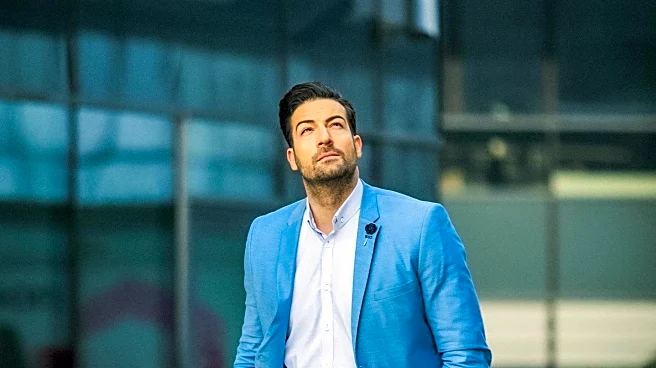What's Happening?
The concept of 'revenge travel' emerged as a significant trend post-pandemic, characterized by a surge in travel as people sought to make up for lost time during COVID-19 restrictions. This phenomenon
saw Americans and others around the world eager to travel, leading to increased tourism in popular destinations. However, this trend also highlighted issues such as overtourism, which had been a concern even before the pandemic. As travel restrictions eased, destinations like Machu Picchu and Venice faced unsustainable crowds, prompting a shift towards more responsible and intentional travel. The focus is now on making meaningful connections and supporting local communities through responsible tourism practices.
Why It's Important?
The shift from 'revenge travel' to more thoughtful tourism is significant for several reasons. It addresses the environmental and social impacts of overtourism, promoting sustainable practices that benefit both travelers and local communities. This change encourages travelers to engage in experiences that foster genuine connections and provide economic support to local populations. By prioritizing responsible tourism, the industry can mitigate negative impacts on popular destinations and ensure that travel remains a positive force for cultural exchange and economic development. This transition also reflects a broader societal trend towards sustainability and ethical consumption.
What's Next?
As the travel industry continues to evolve, stakeholders are likely to focus on promoting sustainable tourism practices. This includes encouraging travelers to choose destinations that prioritize environmental conservation and cultural preservation. Travel companies may offer more personalized and eco-friendly travel options, catering to the growing demand for meaningful and responsible travel experiences. Additionally, destinations may implement measures to manage tourist numbers and protect natural and cultural resources. The emphasis on responsible tourism is expected to shape the future of travel, influencing how destinations market themselves and how travelers plan their trips.
Beyond the Headlines
The move towards responsible tourism has deeper implications for the travel industry and society at large. It challenges traditional notions of tourism that prioritize profit over sustainability, encouraging a more holistic approach that considers the well-being of local communities and ecosystems. This shift also highlights the role of travelers as active participants in the preservation of cultural and natural heritage. By choosing responsible travel options, individuals can contribute to positive change and support the development of more equitable and sustainable tourism models.









